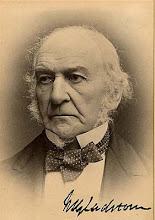Are they:
(a) Generally misanthropes that enjoy human suffering
(b) Unhappy that John Mccain doesn't have a plan to pay for it (Hillary's notion)
(c) Upset that snap bracelets went out of style
(d) Concerned that the supply of refined gasoline is inelastic
Answer: Possibly (a) but definitely (d)
When the supply for a good is inelastic, the quantity supplied by producers does not change very much for a given change in price. If we imagine that the gasoline market is perfectly inelastic, and that producers cannot supply more gasoline even if they wanted to, then removing the tax on gasoline would not result in a concurrent price reduction. Why?
Because we know that at its current price, the total amount of gasoline available is consumed. Even if more consumers wanted to buy gas during the tax moratorium, they would not be able to since the current price of gas rations the amount available, i.e., shortages would result from a price reduction. The producers response? Keep prices stable. They would reap the welfare gains of the tax suspension. And this is not necessarily bad, as long as we can find a way to fund our highway construction. Ugh, earmarks. Ahem.
However, no price reduction is a worst case scenario. It is likely that the supply of gasoline is less than perfectly inelastic, and that the demand for gasoline is also somewhat inelastic. In that case, a gas tax results in a dead weight loss. Its' suspension benefits society overall, but again helps producers more than consumers (which is only fair since they bear the incidence of a tax in this situation). See the following graph...

What is the net result? If the 18 cent gas tax is removed, consumers may realize a 9-12 cent per gallon price decrease, according to Jeffrey Perloff at UCB. Better than nothing, but not much to look at. Certainly not enough to make a big deal about.
Copyright © 2008 TCE.


No comments:
Post a Comment